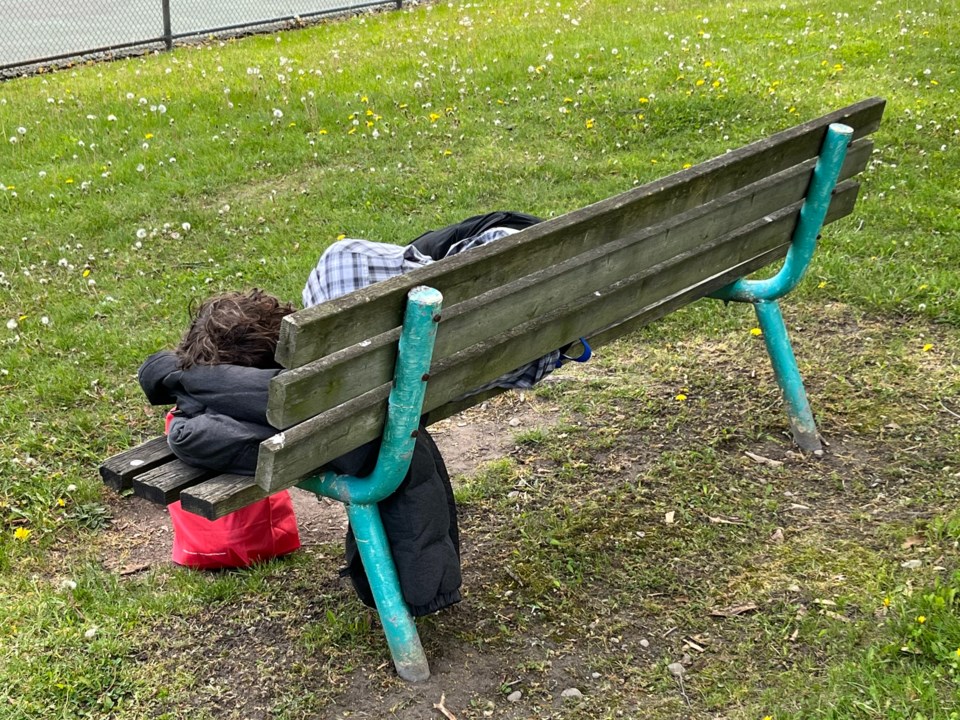BarrieToday welcomes letters to the editor at [email protected] or via the website. Please include your full name, daytime phone number and address (for verification of authorship, not publication). The following is in response to 'LETTER: What mayors should ask for is more social services funding,' published Nov. 2, and 'LETTER: Berczy Park shows 'worst' and 'best' of Barrie,' published Sept. 12.
I would like to respond to Michael Speers and his past two letters. He expressed many of the same concerns that residents of Barrie have regarding encampments and public disorder.
There is a spectrum of public opinion surrounding how best to support those who are struggling with addiction and homelessness. I am hoping to find that the two sides of this spectrum have plenty of overlap, and that someday we can meet in the middle and agree on at least a few things.
Many people do want additional social supports for those struggling with addiction and homelessness. We realize that shelter must be publicly funded, and there must be enough shelter to accommodate everyone who is sleeping outside. We do not want any more urban camping.
Michael Speers is concerned about the infringement on the Charter of Rights and Freedoms. I, too, am holding my breath over this issue. The reasons given for refusing shelter, such as the inclusion of pets, partners and belongings, seems very personal and must be balanced with how much funding can be rolled out for someone who insists that they must be permitted to continue hard drug use while indoors around others who would like to put addiction behind them.
This might be where the harm-reduction and housing-first advocates like to step forward and claim that housing an individual is less expensive than sheltering them. However, shelter is not meant to be a permanent arrangement, but rather a step toward functioning independently.
"Functioning independently" may mean different things from one person to another. To me, "functioning independently" means this person is brought to a shelter with their pets, partner and belongings (within reason) and then is encouraged to reflect on why they are having trouble, which hopefully results in choosing treatment and following that treatment plan with the end goal of living independently.
Ask 10 people and expect as many different answers.
I am sure this sounds fanciful, and it is. Barrie isn't able to shelter, assist and eventually house the large number of homeless people we currently have.
No city was ready for this.
Michael Speers claims that what the United States is facing has nothing to do with what we are facing here in Canada, but it looks exactly the same: people using drugs outside, in parks and other outdoor spaces occupied by tents and surrounded by garbage, an increase in anti-social and violent behaviour, trespassing on private property and theft of anything not secured with a lock that can resist an angle grinder.
This is not just a North American problem; Switzerland dealt with a similar bout of public disorder in the 1990s and, more recently, Portugal has gone through the same problem. Strangely, the same people who advocate for so-called "harm reduction" are often heard telling others that we should emulate Portugal's approach.
But in Portugal, anyone using drugs outside should expect to be arrested, jailed and brought before an intervention council of medical experts and family members who beg them to accept treatment for their mental health and addiction problems.
Hopefully, we will see a similar strategy here, involving compassion with firm boundaries. Maybe the HART centres will be a step in right direction, but we will believe it when we see it.
Michael Speers suggests that we the public just doesn't want to see or be impacted by encampments and the visible suffering of those who live there, and he is correct.
Last month, I attended a citizens' meeting organized by a woman whose home and family have been the repeated target of theft and violence. While not everyone at the meeting agreed on everything, many shared similar experiences and most agreed that we would like to see a visible remedy for this problem.
I would like to end this letter with a few questions:
- Why does Barrie have only minimal, crowded shelter?
- Why did Barrie city council spend time and find money for a sports field that so many did not want, while at the same time there are people sleeping outside?
- Why did Natasha Finbow, a resident near Berczy Park, have to turn off the power to her outdoor electrical outlet and build a fence for her family's security?
- Why did Michael Speers use the terms "aggressive and violent rhetoric," "violence of the state" and "violent encampment eviction" in a previous letter referencing the city's actions to restore Berczy Park to a clean, safe and accessible status after Natasha Finbow's fence was burned?
- Why were these people coming onto her property?
- Just who exactly is being violent?
Lastly, how can it be considered cruel to intervene in someone's life in order to prevent them from killing themselves with fentanyl?
Daisy Oliveros
Barrie



